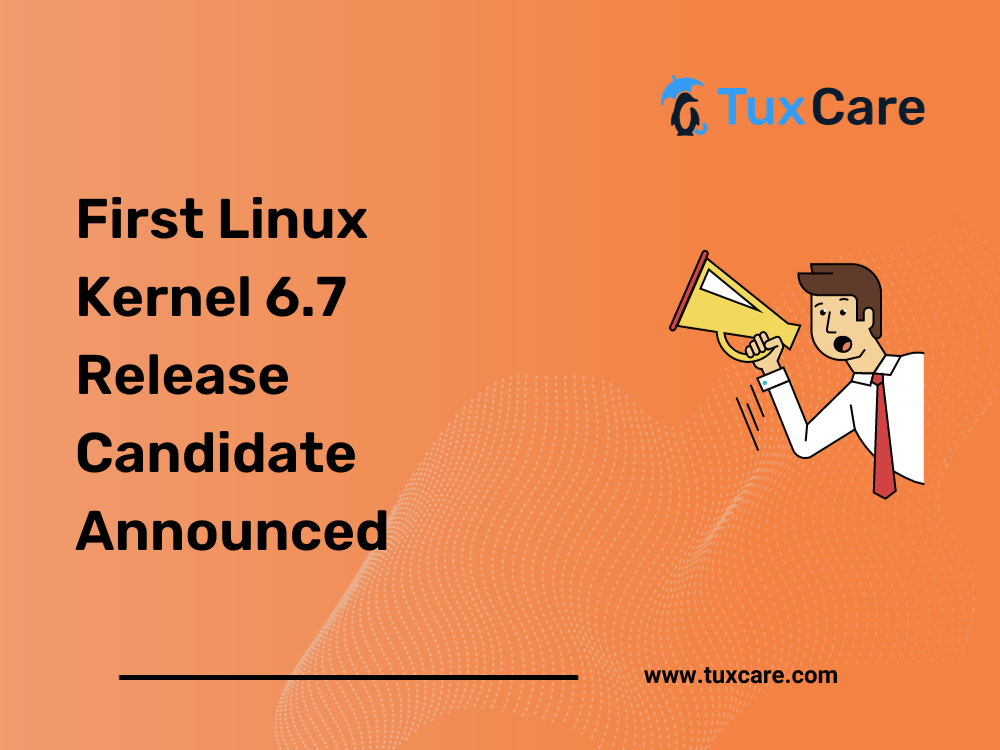First Linux Kernel 6.7 Release Candidate Announced
The next major release, Linux kernel 6.7, is on its way, with the first Release Candidate (RC) now available for public testing. According to Torvalds, this merge window is the biggest ever, boasting an impressive 15.4k non-merge commits.
One of the standout features of Linux 6.7 is the introduction of the bcachefs file system. This copy-on-write (COW) file system is set to rival the capabilities of Btrfs and ZFS while maintaining the speed and performance of EXT4 and XFS. It’s a game-changer for Linux-based operating systems.
But that’s not all – there’s a slew of new features for the Btrfs file system, including raid-stripe-tree, simple quota accounting (squota), and temporary filesystem fsid (temp_fsid). These enhancements are geared towards optimizing logical file extent mapping and ensuring smooth operation across multiple devices.
New Updates in Linux Kernel 6.7
LoongArch Updates
Linux 6.7 is expanding its horizons by making LoongArch a supported architecture for Kernel-based Virtual Machine (KVM). Additionally, it introduces support for PREEMPT_DYNAMIC with static keys and includes BPF CPU v4 instructions for the LoongArch architecture. ARM platforms get a boost, with KVM now supporting guest memory operation instructions, along with added support for Smstateen and Zicond extensions.
Rust Updates
Rust enthusiasts will be pleased to know that Linux 6.7 has upgraded Rust support to version 1.73.0, with IBT now enabled by default if also enabled in C. ARM64 support sees expansion with new HWCAP definitions and support for Ampere SoC PMUs. The ARM platform welcomes support for a data processing unit from AMD/Pensando and a new RISC-V-based high-end device from Sophgo.
The RISC-V architecture in Linux 6.7 sees a host of additions, including cbo.zero support in userspace, CBOs support on ACPI-based systems, software shadow call stacks, handling misaligned accesses in S-mode, new relocations in the module loader, and improvements for T-Head cache flushing ops. Additionally, a virtualized SBI debug console (DBCN) for RISC-V on KVM has been introduced.
AppArmor Updates
AppArmor is not left behind, receiving initial support for mediating io_uring and userns creation. This includes a new restriction to tighten the use of change_profile, along with optimizations aimed at reducing performance bottlenecks during tasks like retrieving the current task’s secid and allocating work buffers.
Final Thoughts
Excitingly, the final release of Linux kernel 6.7 is expected by the end of December 2023 or early January 2024. The specific date will hinge on the number of Release Candidate (RC) milestones Torvalds announces.
For those eager to get a sneak peek, the first Release Candidate (RC1) is available for download from Linus Torvalds’s git tree or the kernel.org website. Just a word of caution: it’s a pre-release version and not suitable for use on production machines. Happy testing!
The sources for this article include a story from 9to5Linux.



 Documentation
Documentation Login
Login




